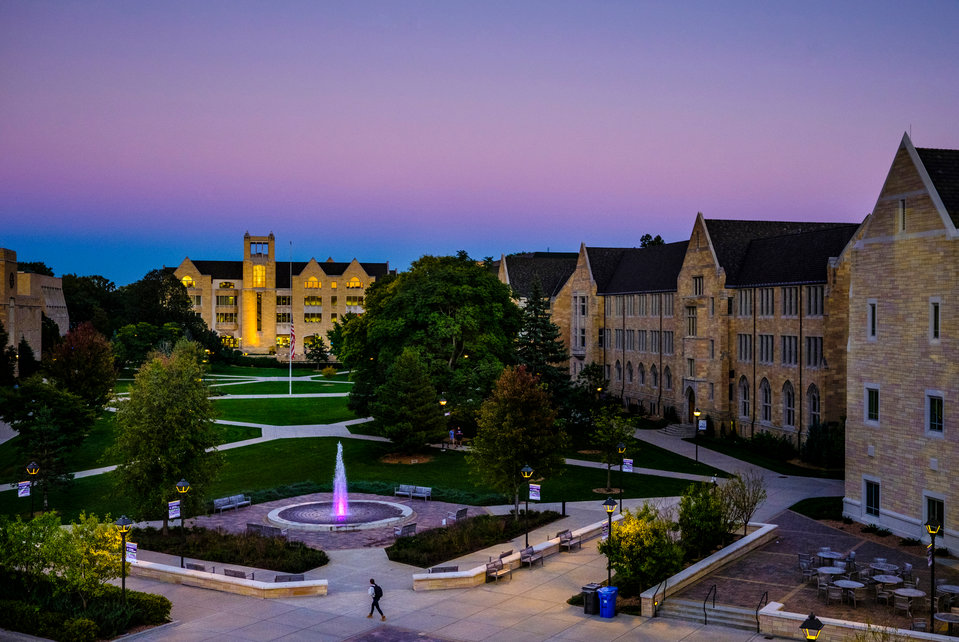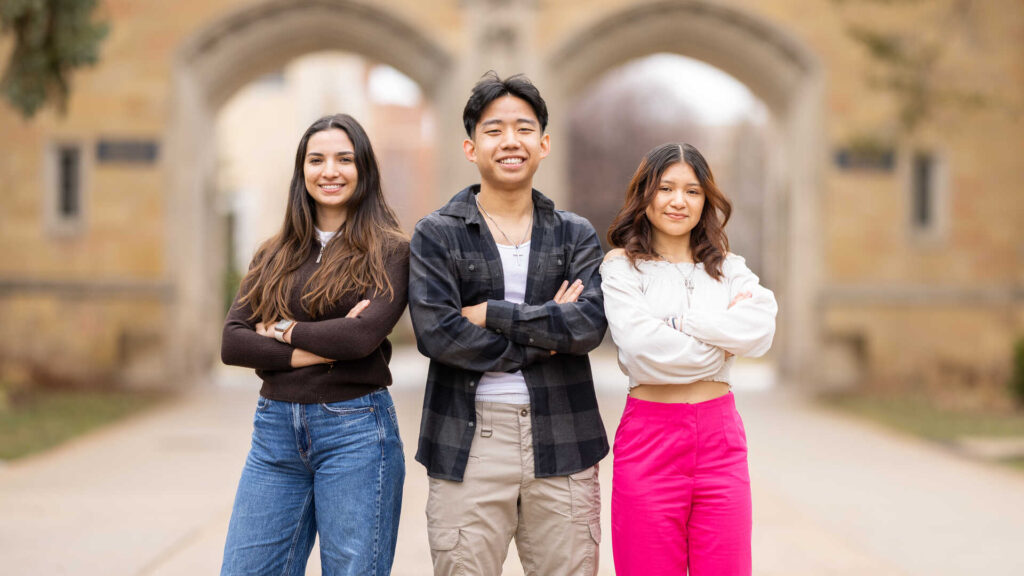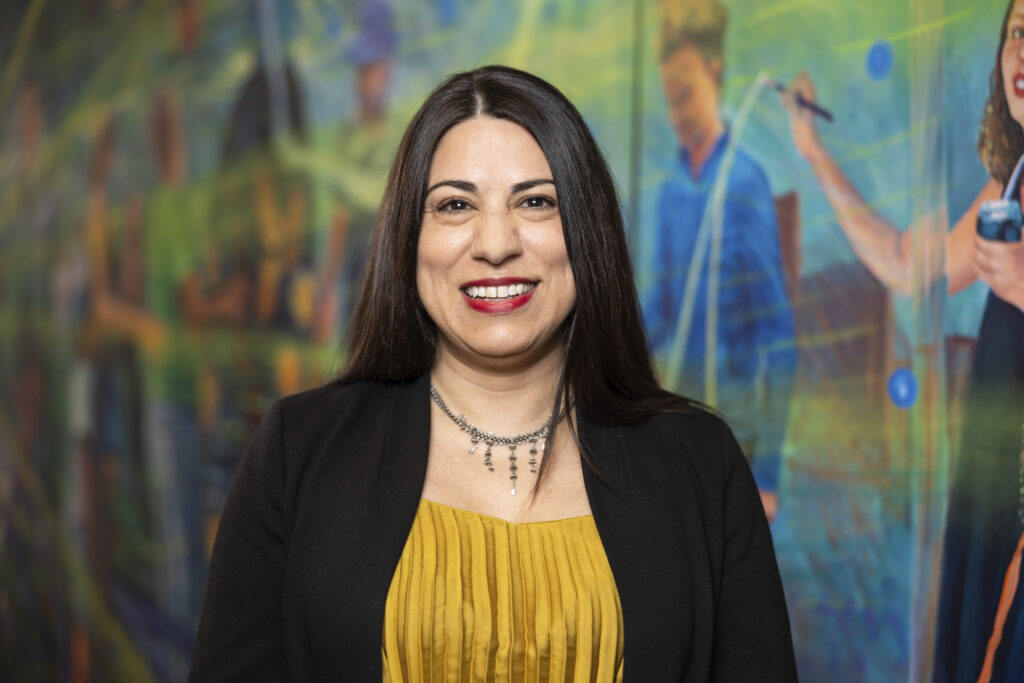Thank you for the time you invested these past few days in reflection, prayer and other activities honoring and demanding justice for George Floyd and seeking sustained racial reform and equity for all. Thank you to the Center for the Common Good for providing a resource list of ways we can advocate for social and racial justice, volunteer in the community and donate goods, services and money to organized efforts to advance the common good.
I am grateful to the College of Arts and Sciences for hosting a community conversation today at 3 p.m. on rethinking justice and equity in time of crisis. I hope you can join us. Click here to join.
The work to dismantle the long history of systemic racism will be hard and require thoughtful, collaborative and sustained effort. There are no easy solutions. There is much work ahead to address the racial inequalities that exist with regard to criminal justice, education, health care, jobs and wealth creation opportunities. And we sit in the midst of a local community that requires rebuilding. Yet, this is work we have a responsibility to undertake, if we believe in the sanctity and dignity of every human person and in the common good, which inspires a community that enables the development of everyone’s full humanity. We begin with reflection, repentance and reconciliation. We move forward by leveraging our teaching, scholarship and service missions to advance equity and promote healing within St. Thomas, the Twin Cities, our state and our nation.
Community Input on Next Steps
We have great expertise among our campus community. Many ideas are coming forth, which we will share as they evolve. The Office for Diversity, Equity, and Inclusion (ODEI) will keep our community apprised of a variety of upcoming opportunities to engage and offer input. If you have ideas, please share them with me and Kha Yang, AVP for Inclusive Excellence.
Today, I commit to commission an Inclusive Excellence Task Force of representatives from across campus to assess and update our Action Plan to Combat Racism, bring additional ideas forward and implement changes that will make St. Thomas more equitable and just. We also recommit to commission an external audit of structures, policies and processes related to diversity, equity and inclusion on our campus, which will begin no later than the beginning of the fall semester. This audit will provide suggestions on policies and practices that must be changed for St. Thomas to be more equitable.
The diversity and equity campus climate survey results will be shared with our community at the start of fall semester. We have begun division strategic planning in diversity, equity, and inclusion across campus and commit to be transparent about those plans and their results. In order for systemic change to occur, our DEI strategic priorities must live and breathe at every level of our institution, and ODEI is leading us through this process.
Advocating for Policing Reforms
I would also like to share with you how I think St. Thomas can play a leadership role in advocating for policing reforms.
First, we will start by looking internally. I have asked Dr. Tanya Gladney, a St. Thomas professor of sociology and criminal justice who has law enforcement experience and academic expertise on the different models of policing, to lead a review of our Department of Public Safety’s policies, procedures and training protocols in order to ensure they are equitable, enhance trust, address potential racial bias and lead to a safe, secure and peaceful environment for all members of our community.
Unlike the University of Minnesota, the University of St. Thomas does not have a police force. We have to rely on our local police force in the event of emergencies. Our public safety officers play a different role. They do not carry guns and cannot make an arrest. As their mission states, “The Department of Public Safety, in partnership with the campus community and within the framework of the university's mission, is dedicated to creating and promoting a safe, secure and peaceful environment by applying policies and laws, delivering emergency services, performing requests for assistance, and providing on-going education.”
We also commit to working with Dr. Gladney, elected officials and community and police leaders to play a leadership role in creating meaningful local police reform that equitably reflects the voices of the local community. We are committed to working closely with Mayor Carter as he enacts additional reforms in our Saint Paul Police Department.
Guided by Faith and Love
Finally, I want to reiterate that as a Catholic institution, we are truly living our mission as we embrace and prioritize this work. I leave you with the words of Cardinal Blasé Cupich, a St. Thomas alumnus.
“Tragedy does not eradicate hope. If there is anything we Christians take from our faith, it is that even the darkest deeds can be redeemed by love. And love is what is called for now. As Dr. Martin Luther King Jr. said, “Darkness cannot drive out darkness; only light can do that. Hate cannot drive out hate; only love can do that.”
Not the love of transactional friendships and cheap associations made by the click of a mouse button or an easy retweet. Signpost solidarity will not do.
Only the hard work of familial love will set us on the path toward justice. The love we read about in Scripture. The love God has for his children, every one of us, even when we fail – especially when we fail. Because God knows what his children are capable of, not only how we can fail in our humanity, but even more how we can build it up. And it is up to us to show God, to show all our brothers and sisters, the neighbors we know and the ones we will never meet, how deeply we can love.”
It is out of my immense love for you that I commit to furthering this work at St. Thomas.







